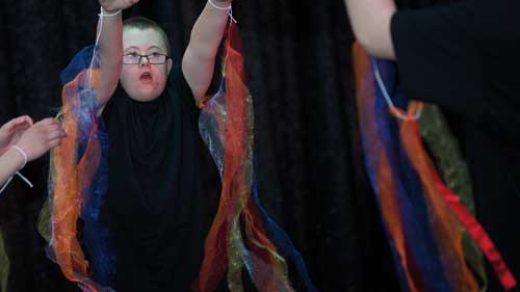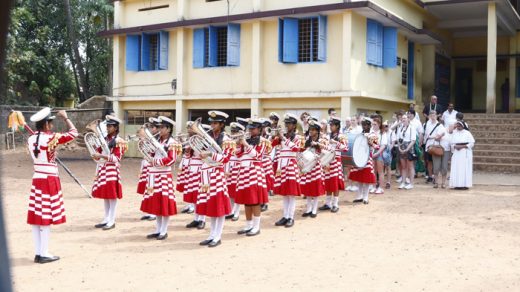Hitting the ground running – a new academic year

“What a year it has been.” We guarantee you have thought or said something along those lines even though the year isn’t anywhere nearly over. For the education sector, we now enter a new academic year which is usually seen as a fresh start, but instead of looking forward, we must also look at catching up.
The closure of schools to the majority of students back in March, meant that teaching as we knew it was put on hold. Instead virtual learning was introduced and for the most part it was very successful, but it was no replacement for the real thing.
Senior leadership teams and teachers have spent the last few months deciding how to get their students back on track. The new Year 11s and 13 have had to watch the year above them collect their results without sitting any of the normal end of year exams and so what’s in-store for them and the other year groups when they return?
In this issue, we speak to staff from a number of schools and colleges across the region to find out how they’re feeling about the new academic year and what their plans are following the interruption to the education of a generation of learners.
Michael Kennedy, principal of St Mary’s College in Crosby, said: “We are optimistic for the new academic year even though we realise that we could potentially be faced with another abrupt interruption at any time. ‘Stay positive’ is the theme – we are planning for a full return to lessons but within the safety parameters set out by government in July.”
Mr Kenndey continued: “Our Year 10 pupils responded excellently during the lockdown last year. They were given brilliant remote learning support by teachers in terms of personal ‘virtual’ contact, tasks to do as well as feedback on how to improve. Some pupils responded even better than when in school!
“Certainly, it is food for thought for future modes of tuition, study and assessment to complement the more traditional approaches. We are confident that our Year 11 pupils will manage to get back on track although in some of our more practical subjects such as music, PE, design and technology they will bound to have some catching up to do as these have more ‘tactile’ aspects to them and so were restricted more than most in some parts.”
Over at Liverpool Life Sciences UTC, the principal, Jill Davies, and her team have adapted and adjusted their ways of teaching. She said: “We have worked tirelessly to try to reduce the impact of closure on our new Year 11s. We hit the ground running as we are already a ‘google school’ meaning that all of our students use google classroom as an integral part of their regular learning.
“I am completely aware that accessing the learning is only one track, for us the key to success is establishing and maintaining positive professional relationships with our students. Staff were in contact with our most vulnerable students every week and lessons were delivered virtually.
Jill continued: “All of these efforts mean that getting back on track, whilst remaining a challenge is not impossible and we are ready for it! We have adapted our timetables, adjusted our ways of teaching and even tweaked our school days to get on track as smoothly as possible.”
For the new Year 13s, Liverpool Life Sciences UTC will allow them to redo Year 12 if that is best next step for them. Jill said: “Students going in to Year 13 need to be ready for completing their level 3 qualifications in the next 8 months and some students need the opportunity to revisit the content from Year 12.
“We are in the unique position to provide individual additional tuition for all students studying sciences and maths with no additional costs to the students whatsoever!”
For many children they will be transitioning from primary school to secondary school. Most schools had to make the difficult decision of cancelling their taster days and think outside the box for other ways in which to welcome the new cohort.
The Academy of St Francis of Assisi in Kensington held a virtual welcome evening after seeking inspiration from St Bede’s Catholic High School. Taking place via Zoom over two nights, head of school Kevin Maddocks welcomed new students and their families to the academy over the internet.
Students found out about the typical school day, the subjects they will study and the vast array of extracurricular clubs on offer. They also learnt about the uniform and academy rules and values.
For primary schools, things will be equally as different and perhaps more difficult to manage when they have to explain to children they can’t work and play with their friends like the used to.
Deputy headteacher, Marie Beale from Whitefield Primary School, said: “We are really looking forward to reconnecting with our families and children in September and hearing their stories of lockdown, refocusing and moving on together. We know it will be challenging and some of the logistics are difficult but we will work together for the children, as we always do; our parents, staff and the wider community.”
Plans have been carefully thought-out at Whitefield Primary School on how they will get pupils back on track. Mrs Beale also said: “We have been working as a staff team to think how we might best support all our children when we return to school after lockdown. Our curriculum intent written before the pandemic is full of ambition for our children, a desire to widen their perspective and give them opportunity. COVID-19 has not altered that passion and focus.
“Thus, our focus coming back will be on looking at what each child needs to flourish, grow and to rebuild from their individual experiences of lockdown so that they continue to meet their potential. That will mean focusing on the children’s social, emotional and mental health as well as their basic skills and an aspirational curriculum. We understand that rebuilding will start with a focus on relationship and reconnection, with staff and with peers. We want to ‘build back better’!
What will be the biggest challenges for schools this academic year? Mr Kennedy believes it will be re-assurance, continuity and achievement. He said: “Staff are ready to be that re-assuring face in September and persuade pupils that they are still on course to achieve their potential.
“Continuity is always at risk when a local lockdown could be imposed at short notice nearly anywhere. I am fortunate that the fellow leaders in my team have anticipated challenges excellently and planned accordingly. Already we have on-line provision ‘lined-up’ should we need to transfer again to a remote learning model. The aim is to maintain continuity as seamlessly as possible regardless of where and how learning happens.
For Liverpool Life Sciences UTC, Jill realises there are things she can and cannot control. She said: “The biggest challenge is to focus on those that you can control and making those as positive and rewarding as possible whilst not worrying too much about the things you cannot control.
“My focus is on our students, my colleagues, our families and our values, building strong, positive and professional relationships with the amazing young people that trust us with their futures. Not only is that the biggest challenge but also the most rewarding part of the job!”
Educate also spoke to Tom Wallace who works for Balance – a curriculum tool for teachers – to find out how this innovative programme can help teachers get back on track with their work load.
He said: “Balance’s unique curriculum tool allows schools across the country to review their personalised curriculum – examining content from March onwards. From here they’re able to determine what is vital (disciplinary) knowledge or skills (KPIs) that children need to know and secure in order to progress through the curriculum this academic year.
“By using Balance’s powerful curriculum analytics, teachers can identify key children whose gaps in learning are greater than their peers, and create opportunities for specific ‘learning events’ to help close the gap.”
He concluded: “Understanding children’s current attainment following lockdown isn’t easy. It takes time, planning, seeing a bigger picture with the understanding that this may take weeks, months or even years to recover from – and that’s okay. Let’s not fool ourselves that there is a magic quick fix, but see this as an opportunity to grow from, and form deeper understanding about school practices and children’s learning.”




